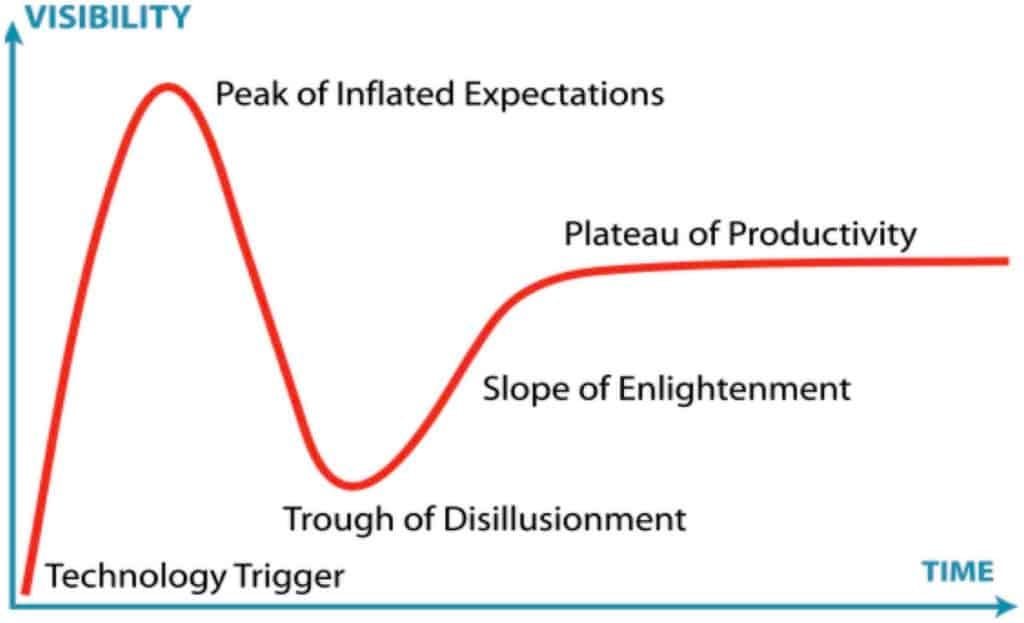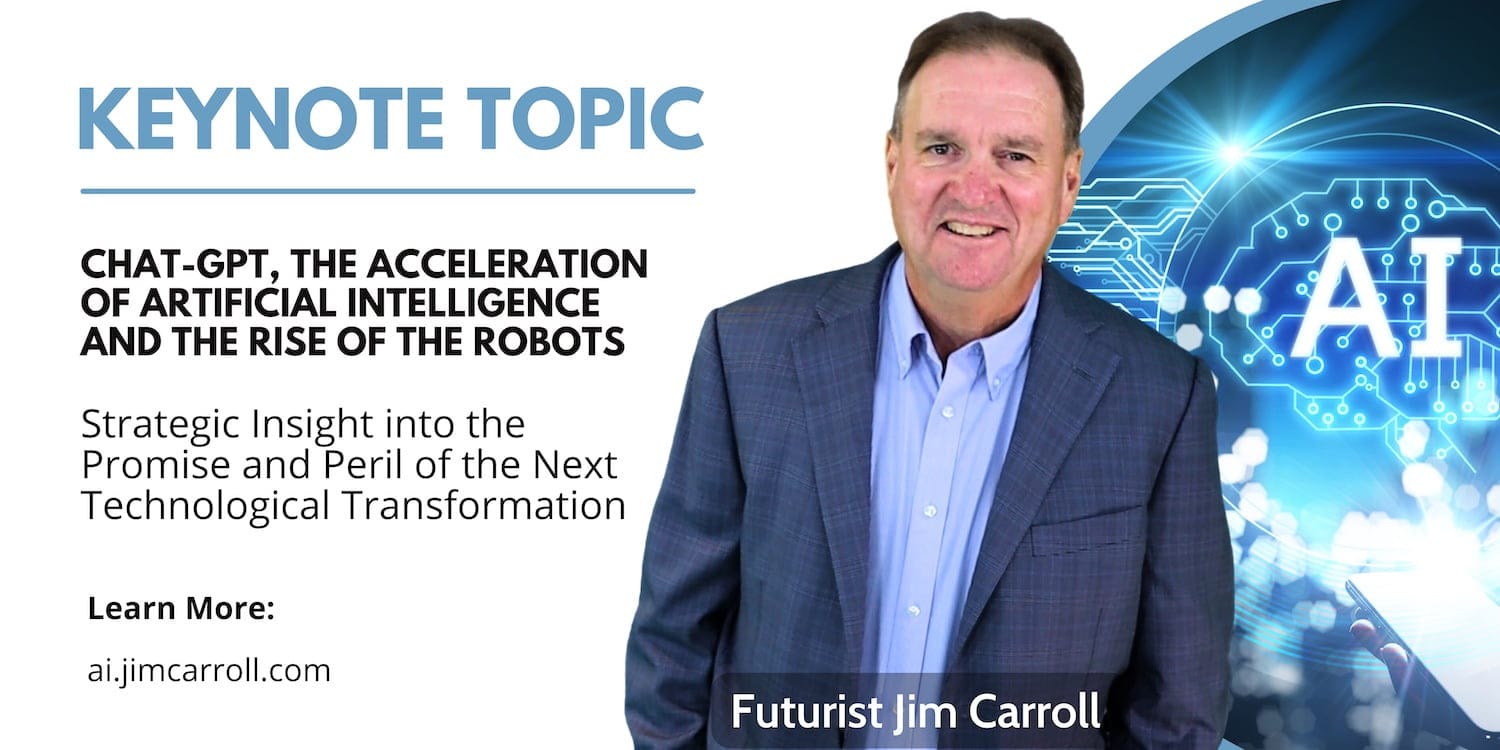It's 1995. The Internet has exploded onto the scene, and everyone is going bonkers with the arrival of the World Wide Web.
It went like this.
Everyone: "We need to have a Web site!"
CEO: "Why?"
Everyone: "Because everyone else has one, and this is moving crazy fast!"
CEO: "What's the strategy?"
Everyone: "Um..."
And so here we find ourselves today. Every CEO on the planet is going to have people banging on their door.
Everyone: "We need to get involved with A.I.!"
CEO: "Why?"
Everyone: "Because everyone else is, and this thing is moving crazy fast!"
CEO: "What's the strategy?"
Everyone: "Um..."
The parallels are uncanny. This is why I've found myself quickly launching into my 'it's the strategy, not the technology’ mantra. Sometimes when I do this, I feel like I'm ruining the party - but strategy matters.

Don't get me wrong - no doubt there is something massive that is underway. If you are a technology or software company, the impact that A.I. will have on your business model and your products or services is going to be astounding - and significantly disruptive. If you are in the content creation business - publishing, design, graphics - the impacts are also there in a huge way. But for a lot of mainstream industries - finance, insurance, manufacturing, retail, agriculture - the impact is a bit more esoteric and yet to be determined.
I've been here before. Back in 1995, when the Internet burst onto the scene, I found myself in similar times. As the co-author of quite a few books on the topic (back when people actually bought books to try to understand things), I found myself thrust into the media spotlight, with cover stories like this one in Profit magazine.
I hated the title - "How to make money on the Internet" - since it sounded like some sort of fly-by-night scam thing. But the essence of the article was this - it's the strategy, not the technology that matters. The article caught that tone in one of the opening paragraphs:
Why should your company want a Web site? Because the World Wide Web is one of the most powerful business tools since the personal computer itself. A Web site can mean incredible cost savings for your company, through better customer service and reduced communications expenses. The Web can serve as a market-research tool, since it enables instant user feedback. Most important, the Web is emerging as an effective marketing tool that can bring your products and services to prospective clients around the world, in a medium that invites users to customize your firms' messages to their preferences.
The article caught the essence of my mindset that technology should always be about strategy. And yet, that is often lost when we accelerate at speed into the "Peak of Inflated Expectations" on the Gartner Hypecycle. There is absolutely no doubt that we are there right now with A.I.

Don't get me wrong!
A.I. is probably the most transformative technology of all time next to the Internet and the arrival of the personal computer. What is happening here is massively profound, and it is happening at a speed that is simply stunning. Just yesterday, OpenAI, the organization behind ChatGPT, announced the availability of 'plugins'. What does this mean? They demoed how it could be used to have the system automatically trim a few seconds off of a video clip. In the 'olden days' - i.e. last week - you would have needed a separate computer software program to do that. Today, you just need an A.I. Things like that will have profound impacts on potential pathways for the software and technology industry.
But what does it mean for an insurance company? An airline? A company that manufactures widgets? The future design of retail stores or the design of an automotive dashboard? How might it influence a consumer to purchase a car in the future - or insurance? What happens to customer support and interaction - should customer service agents be replaced with an A.I., and if so, how might it go wrong? When should A.I. interaction tools be integrated into a product, and when should they not be?
These are all massively critical questions, and no doubt we will see a lot of unique solutions emerge - at speed. But rushing into something new without thinking things through is a recipe for mistakes and errors and missteps - we know that from history. I took this issue on while on stage the other day in a room full of life insurance brokers and executives. During the Q&A portion of my talk, I began using Microsoft's Bing A.I. tool - which is based on ChatGPT - to help out with some of the audience questions. This little clip seems particularly apt.
My point to the audience? Something profound is underway. They need to work with it, understand it, comprehend it - and think about it but from a. strategic, business perspective. And yet, in all the hype and hysteria around A.I. at this critical moment, people are once again forgetting it's not just about the technology - it's about the strategy. And for me, the golden rule has always been this:
How can technology be used to help:
- run the business better
- grow the business
- and transform the business.
Without answering those questions, it just becomes another rush forward because of FOMO - Fear of Missing Out. And often, that often ends up not going well!
Which is why I am so relentlessly focused on the issue right now!

Futurist Jim Carroll is finding that the level of interest in understanding the strategic implications of A.I. with his executive audiences is simply unparalleled. More information about his talks in this area can be found at https://ai.jimcarroll.com
Thank you for reading Jim Carroll's Daily Inspiration. This post is public so feel free to share it.

